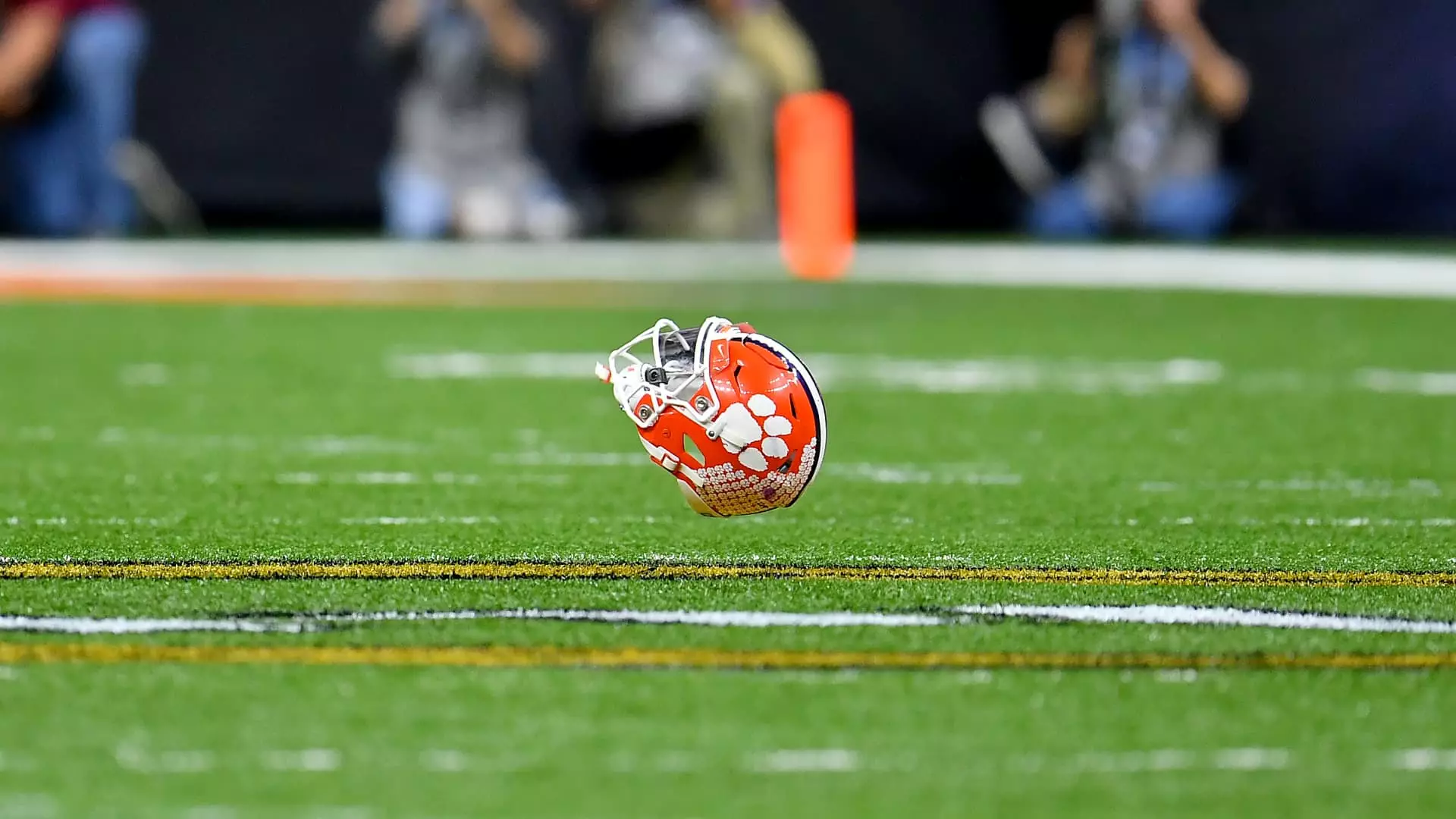In a significant turn of events, DirecTV and Disney have finalized a deal that sees the reinstatement of Disney’s networks, including ESPN, after a roughly two-week blackout. This resolution, which coincides with the much-anticipated college football season and major events like the Emmy Awards, underscores the increasingly complex dynamics between traditional pay-TV providers and content creators. The blackout, which began on September 1, emerged from a failure to effectively negotiate fees and package structures, leaving DirecTV’s 11 million subscribers without access to prominent sporting events, such as the U.S. Open and the opening game of “Monday Night Football.”
As consumers grow accustomed to seamless access to content, disruptions like these not only frustrate viewers but also expose vulnerabilities within the established television ecosystem. The DirecTV-Disney situation highlights the fragility of relationships in the media landscape, where negotiations can abruptly disrupt viewers’ access to widely benefited entertainment options.
The Back-and-Forth: Key Players and Their Perspectives
The strain between DirecTV and Disney boiled down to deep disagreements regarding value and future direction. DirecTV executives emphasized the need for “skinnier,” genre-specific bundles, a trend gaining traction as more viewers gravitate toward personalized viewing experiences. This demand points toward a shift in consumer preference from comprehensive packages towards options better tailored to individual viewing habits.
On the other hand, Disney maintained that DirecTV’s proposals undervalued their content offerings. This clash of perceptions triggered a series of public remarks, with DirecTV branding Disney’s strategies as “anti-consumer,” while Disney’s ESPN Chairman, Jimmy Pitaro, dismissed DirecTV’s responses as essentially “hypothetical.” Such exchange did not merely reflect a negotiation breakdown but also emphasized deeper underlying tensions about how value is defined and perceived in the modern media landscape.
The new agreement has been presented as a “first-of-its-kind collaboration” — an opportunity for DirecTV to offer a more flexible approach to content delivery. Subscribers will now potentially enjoy genre-specific packages that go beyond conventional offerings. This innovation is a response to the ongoing evolution of the pay-TV industry in which users are increasingly demanding flexibility and choice in their viewing options.
Additionally, the deal allows DirecTV access to Disney’s streaming services and upcoming ESPN flagship streaming service, set for launch in fall 2025. With this inclusion, subscribers can look forward to a significantly enhanced viewing experience that incorporates modern streaming capabilities along with traditional linear television.
The ramifications of the DirecTV-Disney deal extend beyond mere viewer satisfaction. The blackout illuminated just how reliant various stakeholders have become on live sports programming. Many small businesses, particularly bars and restaurants, suffered economically as the agreement halted their ability to feature live games. The situation exacerbated existing vulnerabilities in their operations, as they often depend on pay-TV providers to deliver substantial content for clientele.
Moreover, this conflict came at a particularly unfortunate time during crucial national events, like presidential debates. The lack of access to ABC, owned by Disney, for certain users reflects not only on DirecTV’s approach but also on the intense competition and public relations strategies between providers. DirecTV’s refusal to temporarily allow access to ABC during a pivotal debate raised questions about consumer priorities versus image management.
The ongoing shifts in viewer behavior — favoring streaming platforms over traditional cable bundles — have added pressure on companies like DirecTV to rethink their strategies. The agreement with Disney comes as part of a larger trend wherein pay-TV providers adapt to compete in an increasingly digital landscape. DirecTV has launched an advertising campaign to emphasize its dual nature as both a satellite and streaming service provider, suggesting that its survival depends on a flexible approach to content delivery.
As the landscape continues to evolve, companies will need to focus on developing partnerships that enhance consumer experiences while also aligning with contemporary viewing habits. The negotiations between DirecTV and Disney foreshadow larger shifts within the industry as entities grapple with the challenges and opportunities that accompany the merging worlds of streaming and traditional television. Ultimately, the outcome of these dynamics will shape not just the future of pay-TV but also the broader media landscape as we know it.

